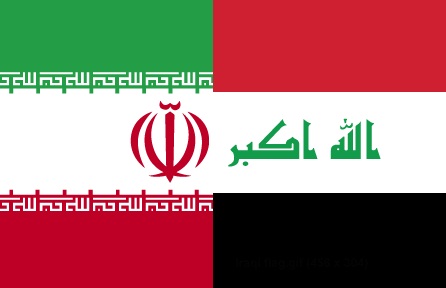
RNA - “Iran is a neighboring country and our interest lies in having good and stable relations with Iran,” Barham Salih said while speaking to reporters during a visit to Kuwait on Sunday.
The administration of US President Donald Trump announced on November 5 the re-imposition of the “toughest” sanctions ever against Iran's banking and energy sectors with the aim of cutting off its oil sales and crucial exports. The bans had been lifted under the 2015 nuclear deal, officially known as the Joint Comprehensive Plan of Action (JCPOA).
Washington has been pushing governments to cut imports of Iranian oil to zero. However, it has finally agreed to grant waivers to eight biggest importers of Iran's oil -- China, India, South Korea, Japan, Italy, Greece, Taiwan and Turkey -- in fear of a price spike.
In a video published on its official Facebook page on Thursday, the US Embassy in Iraq said Baghdad could continue to import natural gas and other energy supplies from Iran for a period of 45 days, provided that it did not pay Iran in US dollars.
“The United States has given Iraq a temporary relief from the sanctions for 45 days to continue purchasing natural gas and electricity from Iran,” it added.
Elsewhere in his interview with reporters, Salih said, “We do not want Iraq to be burdened with the US sanctions on Iran,” urging Washington to take into account Baghdad's position as the two sides negotiated Iraq’s relief from US sanctions on Iran.
The Iraqi president also emphasized that his country wanted to maintain "balanced" relations with all its neighbors and the international community.
The special representative for Iran at the US State Department Brain Hook said on Wednesday that Iraq will continue importing electricity and natural gas from Iran under an exemption from Washington's sanctions.
"We granted Iraq a waiver to allow it to continue to pay for its electricity imports from Iran. We are confident that this will help Iraq limit electricity shortages in the south," Brian Hook told reporters, adding, "Iraq is a friend and a partner, and we are committed to its stability and prosperity."
According to Press TV, Iraq has extensive trade ties with Iran and depends on Iranian natural gas imports for electricity generation. In September, the southern Iraqi city of Basra was hit by violent protests, which spread to other cities, partly because of a halt to Iranian electricity exports.
Iran is currently Iraq's top trade partner, with an annual turnover standing at about $12 billion, according to Iraqi officials.
Foodstuff, livestock, construction materials and plastic products constitute the bulk of Iran’s exports to Iraq where Iranian vehicles and food data-x-items are a ubiquitous sight.
Iran and Iraq have also been exchanging oil through a swap deal under which crude from the Kirkuk field in northern Iraq is shipped by truck to Iran, which uses it in its refineries and delivers the same amount of oil to Iraq’s southern ports.
847/940